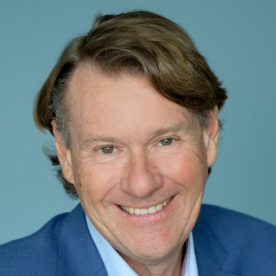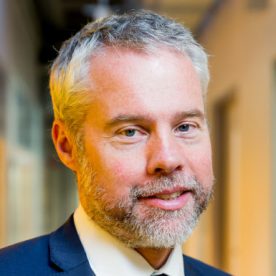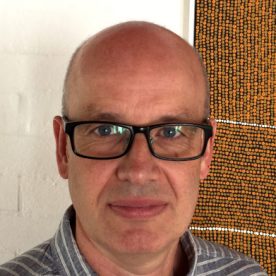The Italian physicist Pablo Giordano has warned that “other diseases are likely to put coronavirus in the shade”. Three leading scientists say that by working together across the world, researchers can counter COVID-19 and prevent these future pandemics.
Australian scientists have played a profound role in helping humanity understanding the dangers of viruses like COVID-19. Our researchers are making vital contributions to collaborative research with their peers from around the globe, including in China, the USA and the UK.
The Australian Academy of Technology and Engineering’s NSW Division recently explored these efforts in an urgent webinar with three leading Australian scientists:
- Professor Stephen Simpson AC FAA, Academic Director of the Charles Perkins Centre
- Professor Edward Holmes FAA, Professor at the University of Sydney
- Professor Benjamin Eggleton FTSE FAA, Director of The University of Sydney Nano Institute.
They discussed their personal experiences working to tackle this historic threat and Australia’s contributions to COVID-19 containment and vaccine development, as well as our understanding of the long-term impacts of the pandemic.
Professor Simpson argued that the crisis gives the lie to the dichotomy between “applied” and “research” disciplines.
“COVID has shown us that we need the capacity to convene experts rapidly – nationally and internationally – to come together to tackle complex problems.
“We were able to do that because we had a diverse workforce that includes disciplinary experts that spans a range of different disciplinary areas, and who are adept at working in multidisciplinary teams – not just in STEM disciplines, but in the humanities and social sciences.”
“Everything will fail unless we globally act together”, said Professor Eddie Holmes, a leading virologist who specialises in animal to human disease transmission.
His own work in Wuhan contributed to his deep understanding of the evolution of the disease. “We saw these bat coronaviruses, saw they were jumping species, and knew it could be a problem. The idea that this was going to happen was out there.”
While these Cassandra-like warnings went tragically unheeded, the fact that scientists already had this knowledge offers hope for our capacity to prevent the next pandemic.
The extraordinary potential of world-wide collaboration is another promising sign. Professor Holmes said that after scientists in Chinese sequenced the genome of the coronavirus, the global response was rapid.
“The great thing was that within a week of this sequence being made available to everyone in the world, scientists in Germany had developed a PCR test the track the infection in people, and that’s still the test we’re using today. That’s a huge case of how important it is to share data and work globally.”
As well as investing in research and boosting global collaboration, the expert panel said the world can prevent future pandemics by:
- rethinking our relationship with the natural world (the destruction of which is a major cause of novel disease)
- investing in the researching, creating and stockpiling universal vaccines
- moving from reactive healthcare systems focused on ameliorating sickness to proactive systems that seek to prevent it.
The Academy explored this final point in its recent major report, A New Prescription: preparing for a healthcare transformation
Watch the webinar now:

Professor Stephen J. Simpson AC FAA
Stephen is Academic Director of the Charles Perkins Centre and Professor in the School of Life and Environmental Sciences at the University of Sydney. Together with colleague David Raubenheimer, he developed an integrative modelling framework for nutrition (the Geometric Framework). Professor Simpson has been a recipient of many prestigious awards, among them, in 2013 he was elected a Fellow of the Royal Society of London and in 2015 was made a Companion of the Order of Australia.

Professor Benjamin Eggleton FTSE FAA
Benjamin is Director of The University of Sydney Nano Institute. He also currently serves as co-director of the NSW Smart Sensing Network. Professor Eggleton was the founding director of the Institute of Photonics and Optical Science at the University of Sydney and served as director from 2009-2018. He was previously an ARC Laureate Fellow and an ARC Federation Fellow twice and was founding director of the ARC Centre of Excellence for Ultrahigh Bandwidth Devices for Optical Systems from 2003-2017.

Professor Eddie Holmes FAA
Eddie is a member of the Charles Perkins Centre and the Marie Bashir Institute for Infectious Diseases and Biosecurity and also holds a joint position with the School of Life and Environmental Sciences and the Sydney Medical School. He currently holds an ARC Australian Laureate Fellowship. He is also a Guest Professor at the Chinese CDC, Beijing, and an Honorary Visiting Professor at Fudan University, Shanghai. Professor Holmes is known for his work on the evolution and emergence of infectious diseases, particularly the mechanisms by which RNA viruses jump species boundaries to emerge in humans and other animals. He has studied the emergence and spread of such pathogens as SARS-CoV-2, influenza virus, dengue virus, HIV, hepatitis C virus, myxoma virus, RHDV and Yersinia pestis.